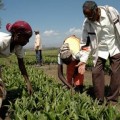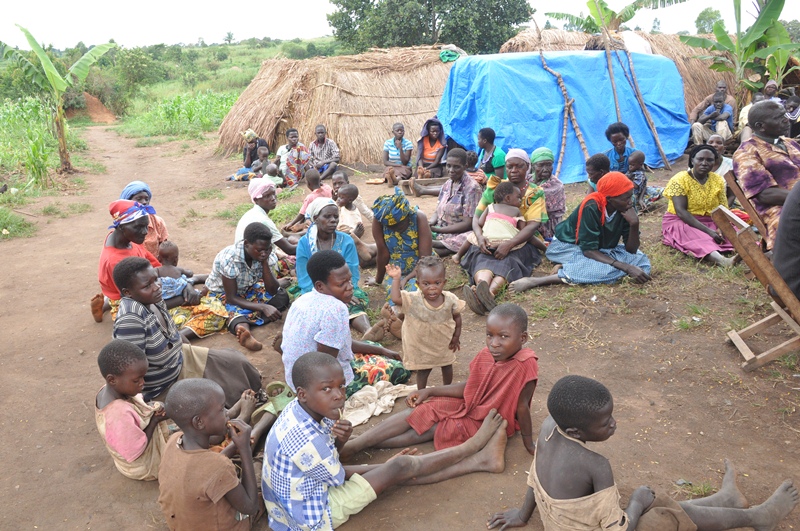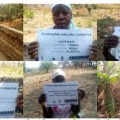MEDIA FOR CHANGE NETWORK
How food and water are driving a 21st-century African land grab
Published
5 years agoon
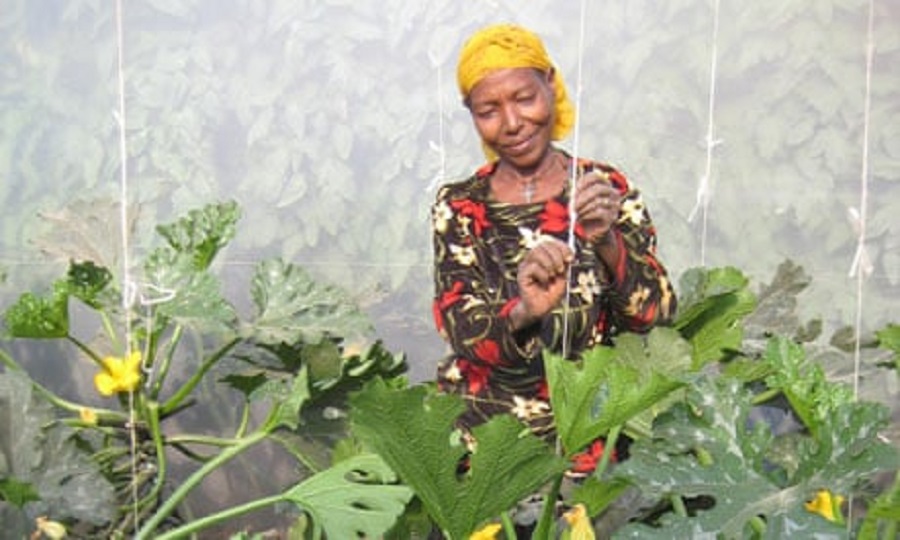
A woman tends vegetables at a giant Saudi-financed farm in Ethiopia.
An Observer investigation reveals how rich countries faced by a global food shortage now farm an area double the size of the UK to guarantee supplies for their citizens.
We turned off the main road to Awassa, talked our way past security guards and drove a mile across empty land before we found what will soon be Ethiopia’s largest greenhouse. Nestling below an escarpment of the Rift Valley, the development is far from finished, but the plastic and steel structure already stretches over 20 hectares – the size of 20 football pitches.
The farm manager shows us millions of tomatoes, peppers and other vegetables being grown in 500m rows in computer controlled conditions. Spanish engineers are building the steel structure, Dutch technology minimises water use from two bore-holes and 1,000 women pick and pack 50 tonnes of food a day. Within 24 hours, it has been driven 200 miles to Addis Ababa and flown 1,000 miles to the shops and restaurants of Dubai, Jeddah and elsewhere in the Middle East.
Ethiopia is one of the hungriest countries in the world with 2.8 million people needing food aid, but paradoxically the government is offering at least 3m hectares of its most fertile land to rich countries and some of the world’s most wealthy individuals to export food for their own populations.
The 1,000 hectares of land which contain the Awassa greenhouses are leased for 99 years to a Saudi billionaire businessman, Ethiopian-born Sheikh Mohammed al-Amoudi, one of the 50 richest men in the world. His Saudi Star company plans to spend up to $2bn acquiring and developing 500,000 hectares of land in Ethiopia in the next few years. So far, it has bought four farms and is already growing wheat, rice, vegetables and flowers for the Saudi market. It expects eventually to employ more than 10,000 people.
But Ethiopia is only one of 20 or more African countries where land is being bought or leased for intensive agriculture on an immense scale in what may be the greatest change of ownership since the colonial era.
An Observer investigation estimates that up to 50m hectares of land – an area more than double the size of the UK – has been acquired in the last few years or is in the process of being negotiated by governments and wealthy investors working with state subsidies. The data used was collected by Grain, the International Institute for Environment and Development, the International Land Coalition, ActionAid and other non-governmental groups.
The land rush, which is still accelerating, has been triggered by the worldwide food shortages which followed the sharp oil price rises in 2008, growing water shortages and the European Union’s insistence that 10% of all transport fuel must come from plant-based biofuels by 2015.
In many areas the deals have led to evictions, civil unrest and complaints of “land grabbing”.
The experience of Nyikaw Ochalla, an indigenous Anuak from the Gambella region of Ethiopia now living in Britain but who is in regular contact with farmers in his region, is typical. He said: “All of the land in the Gambella region is utilised. Each community has and looks after its own territory and the rivers and farmlands within it. It is a myth propagated by the government and investors to say that there is waste land or land that is not utilised in Gambella.
“The foreign companies are arriving in large numbers, depriving people of land they have used for centuries. There is no consultation with the indigenous population. The deals are done secretly. The only thing the local people see is people coming with lots of tractors to invade their lands.
“All the land round my family village of Illia has been taken over and is being cleared. People now have to work for an Indian company. Their land has been compulsorily taken and they have been given no compensation. People cannot believe what is happening. Thousands of people will be affected and people will go hungry.”
It is not known if the acquisitions will improve or worsen food security in Africa, or if they will stimulate separatist conflicts, but a major World Bank report due to be published this month is expected to warn of both the potential benefits and the immense dangers they represent to people and nature.
Leading the rush are international agribusinesses, investment banks, hedge funds, commodity traders, sovereign wealth funds as well as UK pension funds, foundations and individuals attracted by some of the world’s cheapest land.
Together they are scouring Sudan, Kenya, Nigeria, Tanzania, Malawi, Ethiopia, Congo, Zambia, Uganda, Madagascar, Zimbabwe, Mali, Sierra Leone, Ghana and elsewhere. Ethiopia alone has approved 815 foreign-financed agricultural projects since 2007. Any land there, which investors have not been able to buy, is being leased for approximately $1 per year per hectare.
Saudi Arabia, along with other Middle Eastern emirate states such as Qatar, Kuwait and Abu Dhabi, is thought to be the biggest buyer. In 2008 the Saudi government, which was one of the Middle East’s largest wheat-growers, announced it was to reduce its domestic cereal production by 12% a year to conserve its water. It earmarked $5bn to provide loans at preferential rates to Saudi companies which wanted to invest in countries with strong agricultural potential .
Meanwhile, the Saudi investment company Foras, backed by the Islamic Development Bank and wealthy Saudi investors, plans to spend $1bn buying land and growing 7m tonnes of rice for the Saudi market within seven years. The company says it is investigating buying land in Mali, Senegal, Sudan and Uganda. By turning to Africa to grow its staple crops, Saudi Arabia is not just acquiring Africa’s land but is securing itself the equivalent of hundreds of millions of gallons of scarce water a year. Water, says the UN, will be the defining resource of the next 100 years.
Since 2008 Saudi investors have bought heavily in Sudan, Egypt, Ethiopia and Kenya. Last year the first sacks of wheat grown in Ethiopia for the Saudi market were presented by al-Amoudi to King Abdullah.
Some of the African deals lined up are eye-wateringly large: China has signed a contract with the Democratic Republic of Congo to grow 2.8m hectares of palm oil for biofuels. Before it fell apart after riots, a proposed 1.2m hectares deal between Madagascar and the South Korean company Daewoo would have included nearly half of the country’s arable land.
Land to grow biofuel crops is also in demand. “European biofuel companies have acquired or requested about 3.9m hectares in Africa. This has led to displacement of people, lack of consultation and compensation, broken promises about wages and job opportunities,” said Tim Rice, author of an ActionAid report which estimates that the EU needs to grow crops on 17.5m hectares, well over half the size of Italy, if it is to meet its 10% biofuel target by 2015.
“The biofuel land grab in Africa is already displacing farmers and food production. The number of people going hungry will increase,” he said. British firms have secured tracts of land in Angola, Ethiopia, Mozambique, Nigeria and Tanzania to grow flowers and vegetables.
Indian companies, backed by government loans, have bought or leased hundreds of thousands of hectares in Ethiopia, Kenya, Madagascar, Senegal and Mozambique, where they are growing rice, sugar cane, maize and lentils to feed their domestic market.
Nowhere is now out of bounds. Sudan, emerging from civil war and mostly bereft of development for a generation, is one of the new hot spots. South Korean companies last year bought 700,000 hectares of northern Sudan for wheat cultivation; the United Arab Emirates have acquired 750,000 hectares and Saudi Arabia last month concluded a 42,000-hectare deal in Nile province.
The government of southern Sudan says many companies are now trying to acquire land. “We have had many requests from many developers. Negotiations are going on,” said Peter Chooli, director of water resources and irrigation, in Juba last week. “A Danish group is in discussions with the state and another wants to use land near the Nile.”
In one of the most extraordinary deals, buccaneering New York investment firm Jarch Capital, run by a former commodities trader, Philip Heilberg, has leased 800,000 hectares in southern Sudan near Darfur. Heilberg has promised not only to create jobs but also to put 10% or more of his profits back into the local community. But he has been accused by Sudanese of “grabbing” communal land and leading an American attempt to fragment Sudan and exploit its resources.
Devlin Kuyek, a Montreal-based researcher with Grain, said investing in Africa was now seen as a new food supply strategy by many governments. “Rich countries are eyeing Africa not just for a healthy return on capital, but also as an insurance policy. Food shortages and riots in 28 countries in 2008, declining water supplies, climate change and huge population growth have together made land attractive. Africa has the most land and, compared with other continents, is cheap,” he said.
“Farmland in sub-Saharan Africa is giving 25% returns a year and new technology can treble crop yields in short time frames,” said Susan Payne, chief executive of Emergent Asset Management, a UK investment fund seeking to spend $50m on African land, which, she said, was attracting governments, corporations, multinationals and other investors. “Agricultural development is not only sustainable, it is our future. If we do not pay great care and attention now to increase food production by over 50% before 2050, we will face serious food shortages globally,” she said.
But many of the deals are widely condemned by both western non-government groups and nationals as “new colonialism”, driving people off the land and taking scarce resources away from people.
We met Tegenu Morku, a land agent, in a roadside cafe on his way to the region of Oromia in Ethiopia to find 500 hectares of land for a group of Egyptian investors. They planned to fatten cattle, grow cereals and spices and export as much as possible to Egypt. There had to be water available and he expected the price to be about 15 birr (75p) per hectare per year – less than a quarter of the cost of land in Egypt and a tenth of the price of land in Asia.
“The land and labour is cheap and the climate is good here. Everyone – Saudis, Turks, Chinese, Egyptians – is looking. The farmers do not like it because they get displaced, but they can find land elsewhere and, besides, they get compensation, equivalent to about 10 years’ crop yield,” he said.
Oromia is one of the centres of the African land rush. Haile Hirpa, president of the Oromia studies’ association, said last week in a letter of protest to UN secretary-general Ban Ki-moon that India had acquired 1m hectares, Djibouti 10,000 hectares, Saudi Arabia 100,000 hectares, and that Egyptian, South Korean, Chinese, Nigerian and other Arab investors were all active in the state.
“This is the new, 21st-century colonisation. The Saudis are enjoying the rice harvest, while the Oromos are dying from man-made famine as we speak,” he said.
The Ethiopian government denied the deals were causing hunger and said that the land deals were attracting hundreds of millions of dollars of foreign investments and tens of thousands of jobs. A spokesman said: “Ethiopia has 74m hectares of fertile land, of which only 15% is currently in use – mainly by subsistence farmers. Of the remaining land, only a small percentage – 3 to 4% – is offered to foreign investors. Investors are never given land that belongs to Ethiopian farmers. The government also encourages Ethiopians in the diaspora to invest in their homeland. They bring badly needed technology, they offer jobs and training to Ethiopians, they operate in areas where there is suitable land and access to water.”
The reality on the ground is different, according to Michael Taylor, a policy specialist at the International Land Coalition. “If land in Africa hasn’t been planted, it’s probably for a reason. Maybe it’s used to graze livestock or deliberately left fallow to prevent nutrient depletion and erosion. Anybody who has seen these areas identified as unused understands that there is no land in Ethiopia that has no owners and users.”
Development experts are divided on the benefits of large-scale, intensive farming. Indian ecologist Vandana Shiva said in London last week that large-scale industrial agriculture not only threw people off the land but also required chemicals, pesticides, herbicides, fertilisers, intensive water use, and large-scale transport, storage and distribution which together turned landscapes into enormous mono-cultural plantations.
“We are seeing dispossession on a massive scale. It means less food is available and local people will have less. There will be more conflict and political instability and cultures will be uprooted. The small farmers of Africa are the basis of food security. The food availability of the planet will decline,” she says. But Rodney Cooke, director at the UN’s International Fund for Agricultural Development, sees potential benefits. “I would avoid the blanket term ‘land-grabbing’. Done the right way, these deals can bring benefits for all parties and be a tool for development.”
Lorenzo Cotula, senior researcher with the International Institute for Environment and Development, who co-authored a report on African land exchanges with the UN fund last year, found that well-structured deals could guarantee employment, better infrastructures and better crop yields. But badly handled they could cause great harm, especially if local people were excluded from decisions about allocating land and if their land rights were not protected.
Water is also controversial. Local government officers in Ethiopia told the Observer that foreign companies that set up flower farms and other large intensive farms were not being charged for water. “We would like to, but the deal is made by central government,” said one. In Awassa, the al-Amouni farm uses as much water a year as 100,000 Ethiopians.
• This article was amended on 22 March 2011. Owing to an editing error the original said that more than 13 million people in Ethiopia need food aid. This has been corrected.
Original Post: The Guardian
Related posts:
You may like
-
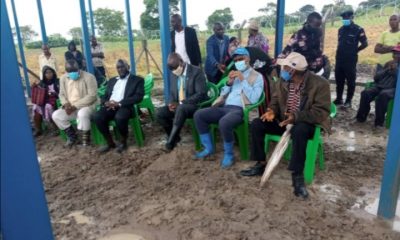

FAO launches solar powered irrigation systems in Kalungu
-
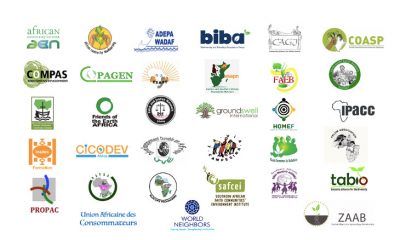

African Civil Society Refuses To Engage With UNFSS Without Radical Change
-
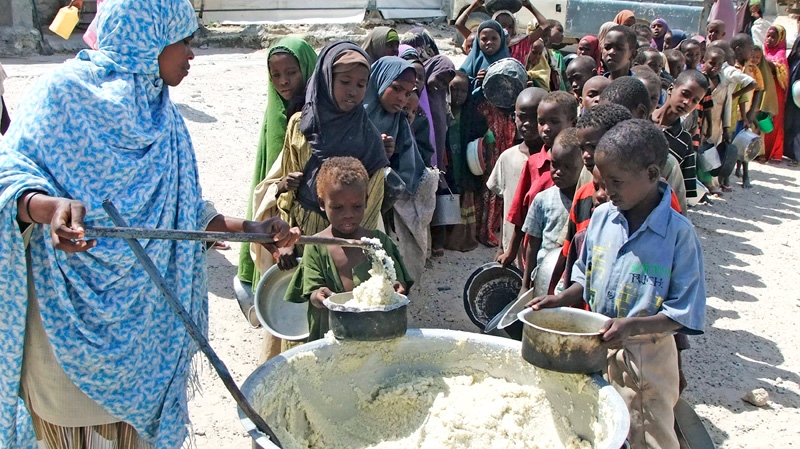

CORPORATE AGRIBUSINESS GIANTS SWIM IN WEALTH AS MORE POOR PEOPLE GO HUNGRY AMID THE BITING COVID PANDEMIC.
-
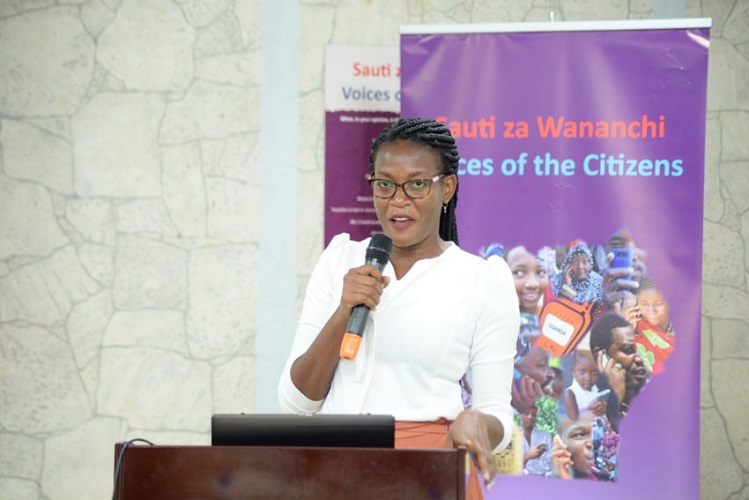

Covid-19 effects: More than half of Ugandan households ate less food in June- Twaweza findings
-


More people to go hungry as the COVID-19 pandemic hits harder
MEDIA FOR CHANGE NETWORK
Indigenous communities’ complaint against World Bank-linked Nepal Cable Car Project declared eligible for investigation.
Published
17 hours agoon
February 5, 2026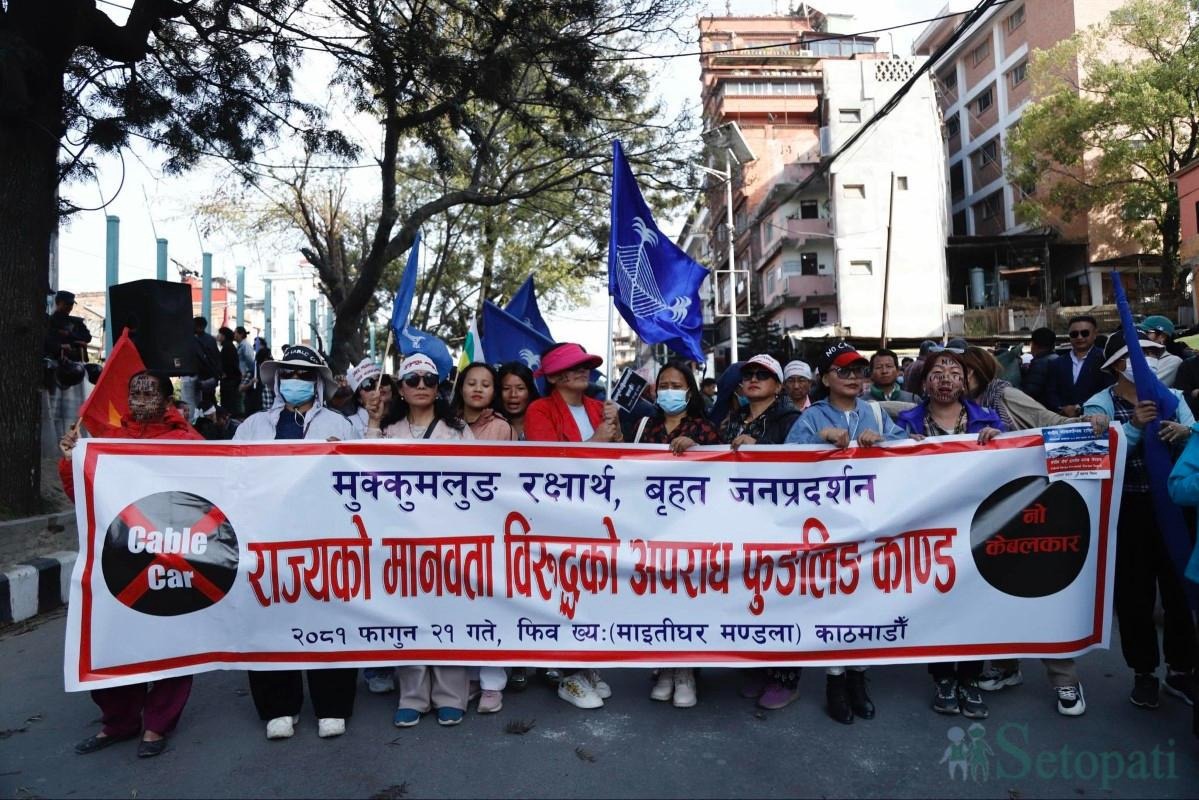
By Witness Radio team
Indigenous Yakthung (Limbu) communities in eastern Nepal have fought hard for recognition after the World Bank Group’s accountability mechanism acknowledged a complaint about rights violations, underscoring their ongoing struggle to protect their land and culture.
The Compliance Advisor Ombudsman (CAO), the independent watchdog of the World Bank Group, accepted the complaint for further assessment and formally registered the case in December 2025. The decision clears the way for a potential mediation process or a full compliance investigation into whether the project breached the IFC’s environmental and social safeguard standards.
In August 2025, Indigenous Yakthung leaders, supported by lawyers and civil society organizations, filed a complaint against the IFC’s advisory support to IME Group for the $22 million Pathivara (Mukkumlung) cable car project in Taplejung District. This filing marks a critical step in holding the project accountable for alleged rights violations and environmental harm.
The cable car is being constructed on Mukkumlung Mountain, a sacred ancestral landscape central to the Yakthung people’s spirituality and Identity, risking irreversible damage to their cultural heritage and Identity.
According to the complainants, construction has already resulted in the felling of more than 10,000 trees in and around the Kanchenjunga Conservation Area, threatening habitats of endangered species such as red pandas, snow leopards, and Himalayan musk deer, underscoring the project’s severe environmental consequences.
“The reason the Complainants and their advisors seek to engage with the CAO is because of the social and environmental harms caused by one of the cable car projects in particular, the Pathivara project. This cable car project has severe impacts on one of the most sacred sites of the Limbu (Yakthung) Indigenous Peoples, including their forests, flora, fauna, heritage (tangible and intangible), and Mukkumlung mountain. The Pathivara project has been imposed on the local Indigenous communities without their Free, Prior, and Informed Consent (FPIC), and has proceeded to destroy their lands, forests, sacred sites, and livelihoods. When the people protest, they have been met with extreme violence and repression by security forces.” The community complaint submitted to the Ombudsman in August 2025 read.
Between August 2022 and July 2024, the IFC provided advisory services to IME Group related to four cable car projects in Nepal, including the Pathivara project. The complainants allege that the IFC failed to ensure that its Environmental and Social Performance Standards, particularly those protecting Indigenous Peoples, were applied.
“The cable car project is tantamount to cultural genocide of the Limbu nation in violation of our rights guaranteed in Nepal’s constitution, the Treaty of 1774 with the Gorkha kingdom, and the UN Declaration on the Rights of Indigenous Peoples,” said Advocate Shankar Limbu, Vice-Chair of LAHURNIP.
Community members say they were unaware of IFC’s involvement until July 2024, nearly two years after construction began, due to the delayed public disclosure of the advisory support.
Accordingly, the complaints stated that the project did not meet the IFC Performance Standards, including failures to assess and manage project impacts, conduct land acquisition, and address involuntary resettlement, among others.
“The IFC’s inability to ensure its client integrated the Performance Standards into the implementation of its plan for delivering cable car projects around Nepal has led to severe breaches of the protections that were supposed to safeguard vulnerable and marginalized communities. Today, Indigenous Limbu communities are being beaten, shot at, arrested, and terrorized for trying to defend their land and way of life,” the community complaints read.
Although the IFC exited the advisory role in 2024, it continues to invest in Global IME Bank, Nepal’s largest commercial bank and a core company within the IME Group. Over the past decade, the IFC has provided more than $50 million in financing to the conglomerate, along with a $500 million trade finance guarantee, which critics say gives the institution ongoing leverage and responsibility.
In its eligibility determination, the CAO found that the complaint met the required criteria, including a plausible link between IFC-supported activities and the alleged environmental and human rights harms. The case has now entered a 90-day assessment phase, during which the CAO will consult with the affected communities, the IFC, and the company involved.
At the end of the assessment, the parties may choose to engage in dispute resolution through mediation or proceed to a full compliance investigation examining whether the IFC failed to follow its own safeguard policies.
The advocates representing the communities welcomed the CAO’s decision.
“We welcome the fact that the CAO has found this complaint eligible, and look forward to working with investigators to uncover how things went so badly wrong. The IFC is currently reviewing its Performance Standards and must learn lessons on consultation, safeguarding cultural heritage and biodiversity, respecting Indigenous Peoples’ rights, and protecting them against retaliation,” Kate Geary, Programme Director at Recourse, one of the organizations that supported the communities in the complaint, reveals.
Further, their appeal is for the CAO to handle the case with utmost urgency. “The CAO investigation into the complaint against the cable car project should move swiftly to remedy ongoing impacts of the project, including retaliations against the local communities,” added Advocate Shankar Limbu.
Indigenous leaders are demanding an immediate halt to construction, the withdrawal of security forces from the area, the release of all IFC-related project documents, and an independent investigation into alleged human rights abuses, urging urgent action to protect their rights and environment.
Related posts:
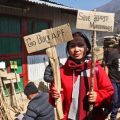
 CSOs call for meaningful changes in the World Bank’s Dispute Resolution Service to foster access to justice for project-affected communities.
CSOs call for meaningful changes in the World Bank’s Dispute Resolution Service to foster access to justice for project-affected communities.
 The World Bank Must Be Held Accountable for Harm Inflicted on Tanzanian Communities by Tourism Project
The World Bank Must Be Held Accountable for Harm Inflicted on Tanzanian Communities by Tourism Project
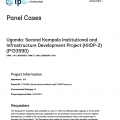 Witness Radio – Uganda and partners welcome a public acknowledgment of the complaint lodged before the World Bank’s Inspection Panel.
Witness Radio – Uganda and partners welcome a public acknowledgment of the complaint lodged before the World Bank’s Inspection Panel.
MEDIA FOR CHANGE NETWORK
The Witness Radio and Seed Savers Network Joint Radio program boosts Farmers’ knowledge of seed and food sovereignty.
Published
2 days agoon
February 4, 2026
By Witness Radio team
Across Africa, seed laws are increasingly structured to favor commercial seed systems, leaving smallholder farmers with limited control over the seeds they rely on for food production. While governments often justify these laws as necessary for quality control and increased productivity, farmers and civil society organizations argue that they deepen dependency, erode Indigenous knowledge, and undermine food sovereignty.
Smallholder farmers produce the majority of the world’s food. Recognizing practices such as saving, exchanging, and replanting seeds can empower farmers and reinforce their vital role in food security.
In response to this challenge, Witness Radio, in partnership with the Seed Savers Network (SSN) in Kenya, is joining hands to save African indigenous seeds by using media to build power and share knowledge and skills with smallholder farmers across Africa and beyond on seed sovereignty and farmer-led food systems.
Last Thursday, Witness Radio and the Seed Savers Network aired the first episode of the program live, featuring representatives of smallholder farmers and civil society organizations from across the African continent. The discussion, which was live on Witness Radio, focused on sharing Indigenous knowledge and practical approaches to saving and conserving African Indigenous seeds.
“It is a crucial time to speak about food sovereignty because, as Indigenous People, talking about food sovereignty is not just an agricultural issue, according to us. It’s a vital act of decolonization and a sign of cultural survival to us and also self-determination.” Said June Bartuin, the Executive Director for Indigenous Peoples’ for peace and climate justice, Kenya, during the first episode of the program.
Across Africa, several policies and laws restrict farmers’ rights to save, exchange, and sell their own seeds. In East Africa, the recently introduced EAC Seed and Plant Varieties Draft Bill 2025 has sparked protests from smallholder farmers and activists, who argue that some of its provisions threaten farmer-led seed systems and favor multinational seed companies.
In Ghana, the Plant Variety Protection Act of 2020 restricts farmers’ seed management practices, underscoring the urgent need for policy reforms that support farmer-led seed systems.
“We have this Plant Variety Protection Act of 2020, which has made it easier for seed companies and the commercial sector to control the seed system,” said Atim Robert Anaab, who works with Trax Ghana and the Beela Project in Northern Ghana, adding that, “The law requires seeds to be certified according to standards that most small-scale farmers simply cannot meet.”
Such laws have reshaped Africa’s food systems by pushing farmers toward commercial seeds that must be purchased every planting season. These seeds are often sold alongside chemical fertilizers and pesticides, significantly increasing production costs for smallholder farmers.
Priscilla Nakato, Chairperson of the Informal Alliance of Communities Affected by Irresponsible Land-Based Investments in Uganda, noted that these policies have also displaced traditional storage and seed preservation practices.
“In the past, every household had a granary, used not only to store food but also to preserve seeds for the next planting season. Many communities still hold this resilience, and reviving these practices can inspire hope for food sovereignty.”
Beyond economics, restrictive seed laws are accelerating the erosion of Indigenous knowledge and cultural practices. June Bartuin explained that women were traditionally the custodians of seeds, preserving them using low-cost methods such as smoke storage in traditional houses.
“This maize could be stored for two, three, even five years, and when planted, it germinated very well,” she added.
The collaboration between Witness Radio and the Seed Savers Network brings together grassroots organizing and community media to amplify farmers’ voices. The Seed Savers Network, a grassroots organization based in Kenya, works with more than 500,000 farmers and supports 121 community seed banks across the country.
According to Mercy Ambani, Resource Mobilization Officer at Seed Savers Network, the organization focuses on rebuilding farmers’ confidence, knowledge, and rights, making platforms such as Witness Radio ideal for reaching farmers directly.
“Our vision is to protect seed sovereignty, conserve biodiversity, and strengthen farmers’ rights through policy advocacy and practical action,” she said.
Through initiatives such as the Seed School, farmers, researchers, and activists are trained in seed selection, storage, preservation, and community seed bank management.
“In December 2024, Kenyan farmers achieved a landmark court ruling that struck down parts of the Seed and Plant Varieties Act, showing the power of collective action and legal advocacy to protect farmers’ rights.”
“This ruling showed that there is power in numbers,” said Ambani. “When farmers raise their voices together, change is possible.”
Regional knowledge exchange is also growing. Farmers from Uganda and Ghana who attended the Seed Savers Boot Camp have returned to their communities to establish household seed banks, kitchen gardens, and farmer field schools.
“My home has become a farmer’s field school. People are hungry for this knowledge,” said Nakato.
Without reforms that recognize and protect farmer-managed seed systems, farmers risk losing control over their seeds — and with them, control over food, culture, and livelihoods.
“If we lose our seeds, we lose our culture, our food, and our future,” Bartuin emphasized.
Wokulira Geoffrey Ssebaggala, Team Leader at Witness Radio, highlighted the importance of creating space for farmers to share knowledge and experiences.
“We are providing a platform where farmers and experts can exchange knowledge on sustainable farming practices. We believe this radio content will have a real impact on food and seed sovereignty across Africa.” Mr. Ssebaggala added.
The radio series will continue to provide practical knowledge, farmer voices, and policy analysis to support sustainable agriculture across Africa.
Related posts:

 Happening shortly! Kenya’s upcoming court ruling on the Seed Law could have a significant impact on farmers’ rights, food sovereignty, and the country’s food system.
Happening shortly! Kenya’s upcoming court ruling on the Seed Law could have a significant impact on farmers’ rights, food sovereignty, and the country’s food system.
 Seed Sovereignty: Most existing and emerging laws and policies on seeds are endangering seed saving and conservation on the African continent.
Seed Sovereignty: Most existing and emerging laws and policies on seeds are endangering seed saving and conservation on the African continent.
 The EAC Seed & Plant Varieties Bill, 2025, is a potential threat to smallholder farmers, as it aims to disengage them from the agriculture business, according to experts.
The EAC Seed & Plant Varieties Bill, 2025, is a potential threat to smallholder farmers, as it aims to disengage them from the agriculture business, according to experts.
 Seed Boot Camp: A struggle to conserve local and indigenous seeds from extinction.
Seed Boot Camp: A struggle to conserve local and indigenous seeds from extinction.
MEDIA FOR CHANGE NETWORK
Close to six years on, Pangero Chiefdom subjects still linger in pain after the government army’s forceful takeover of their ancestral land.
Published
3 days agoon
February 3, 2026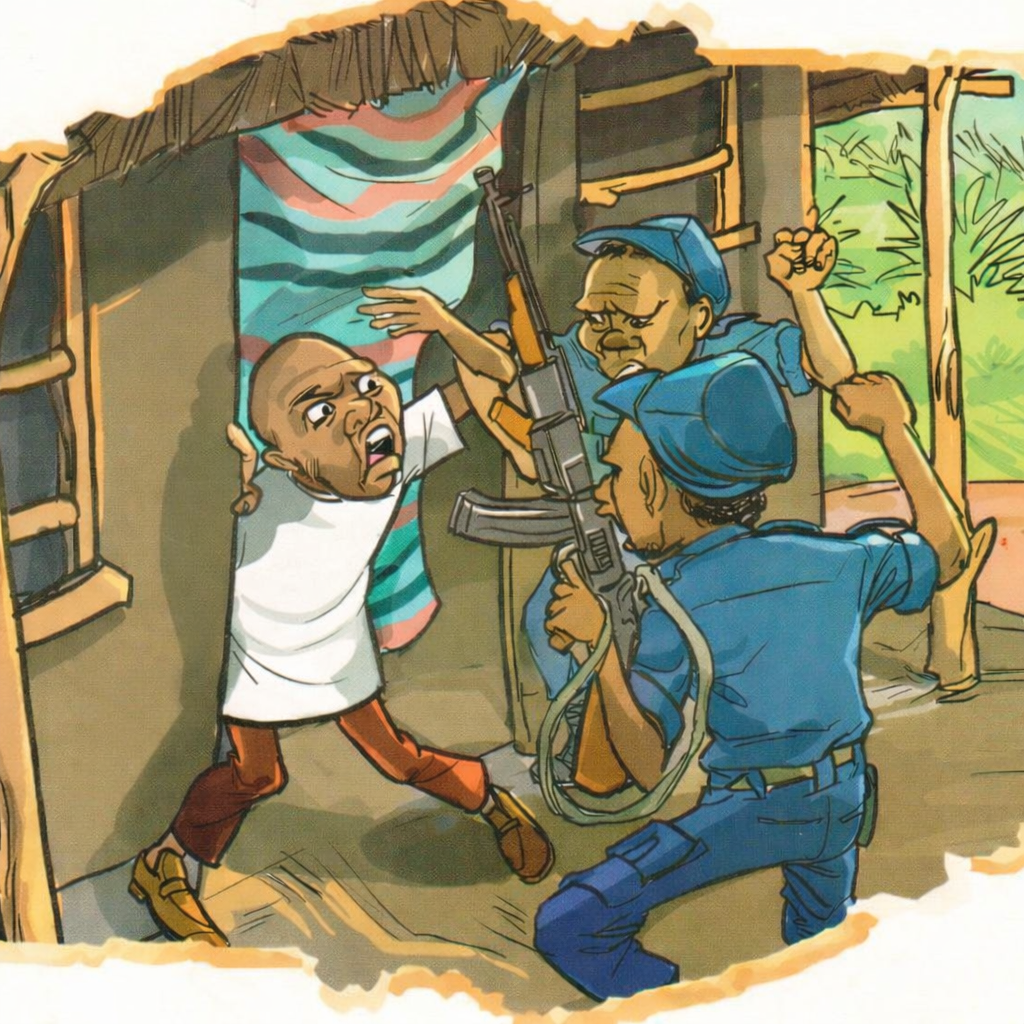
By Witness Radio Team
It was a bolt from the blue—an unimaginable shock that arrived without warning. Close to six years on, its consequences have hardened into everyday reality, and justice remains elusive. That shock was felt most acutely in Pangero Chiefdom, where a once-stable community is still grappling with the aftermath of an abrupt and forceful military land takeover, highlighting ongoing land injustice.
The Pangero Chiefdom of the Alur Kingdom is located in Koch Parish, Nebbi Sub-County, Nebbi District, in north-western Uganda, north of Lake Albert and near the Uganda–DR Congo border. For decades, families here depended on the land for farming, food, and cultural continuity, with traditions and livelihoods deeply tied to the soil.
The wounds from the land loss remain raw, and the community continues to demand the return of their land and justice for their suffering.
Over 100 families across Aleikra, Kochi Central, and Panyabongo villages have been directly impacted by the land grab, according to the Traditional Chief.
In Uganda, land is often taken from people with low incomes through a system lacking explicit legal protections, raising questions about the legitimacy and fairness of land seizures, especially when communities are evicted without free, prior, and informed consent.
“When forces such as the Army occupy community land, people are always afraid even to ask why they are settling or why they have settled on their land. It becomes difficult to question men in uniform,” said Mr. Ulama Dison Duke Ukerson, the Traditional Chief of Pangero Chiefdom, in an interview with Witness Radio Uganda.
In March 2020, hell broke loose in the chiefdom as residents woke up to find UPDF soldiers camping on their land. Many initially thought the soldiers were temporarily stopping over on their way elsewhere. However, after some time, it became clear that the force was not moving on but instead settling in the lush environment of Pangero.
When confronted, residents claim the soldiers explained that they were taking refuge, with Zombo District as their ultimate destination.
“They have stayed there for now, close to six years. Initially, they told us they would take refuge for a few days and later move to the Zombo District. Some left, but others remained. We initially thought they were staying for a few weeks. Since then, they have stayed on our land without paying anything,” said Gladys Budongo, an elder in the chiefdom, in an interview with Witness Radio.
Forty-one-year-old Doreen Kawambe, a resident of Aleikra Village, is among those who lost part of their land during the takeover. Doreen said she originally owned seven acres inherited from her father.
“When the UPDF came, they seized three acres of our land. The remaining land is difficult to access. My family was left with only four acres. We can no longer go to the forest for water, and the areas we used to cultivate are now guarded. Food has become a serious problem,” she said.
Before the takeover, Doreen’s land provided enough income to sustain her family. “From one acre, I could earn up to 800,000 shillings (about 224.94 USD) or more in a season. Now, with less land and limited access, survival is tough.” She explained.
Gladys Budongo, a 61-year-old widow, also lost her late husband’s five-acre family land, which is part of a larger ancestral estate that the family has occupied for decades.
Amid community resistance and ongoing efforts to reclaim their land, the Army conducted surveys and valuations in 2023 and 2024. However, elders like Gladys Budongo claim the process was irregular and imposed without community consent, highlighting the need for legal accountability.
“Koch Land Committee also pressured the community to accept the survey exercise. Although it was supposed to represent the local population, it was not democratically elected by consensus, as is traditional in Alur communities, and instead consisted of an imposed elite who pressured us to surrender our land,” she said.
According to elders interviewed by Witness Radio, during an announcement meeting on September 19, 2025, facilitated by officials from the UPDF Land Board, the national surveyor, and the Commander of Koch Army Barracks, community members were compelled to sign documents accepting meager compensation for land seized five years earlier.
“Residents whose land was surveyed were given two choices: either sell their land to the Army by accepting the compensation offered or refuse the UPDF’s offer,” the area chief said, adding that officials barred him from speaking or defending his chiefdom.
“Leaders in the area are rough when we oppose this land grab. Even in meetings, they don’t allow me to speak. On the few occasions I attended and got silenced,” he said.
Mr. Opio Okech, a community land defender, blamed the government and the Army for forcefully occupying people’s land.
“The forced decision to sell land to the government is similar to eviction because people have no say. The problem started when the government entered the land, stayed for a long time without proper notice, and then decided it would not leave and instead offered compensation. It looks, smells, and walks like a forceful eviction,” he said.
Despite promises of compensation, Gladys and others say they have not received any payment.
“They forced people to sign documents, but nobody has been paid yet. Some were threatened with arrest if they protested,” she said.
Koch Resident District Commissioner (RDC) Mr. Abak Robert, representing the Office of the President, denies allegations of land grabbing, stating the land was acquired on a willing buyer, willing seller basis, which raises questions about the transparency and legality of the process.
“I personally participated in monitoring the project-affected persons. People who accepted giving land to the UPDF were properly valued, accepted the figures, and signed willingly,” he said in an interview with Witness Radio.
When asked how this arrangement worked, given that compensation was considered only after the land had already been forcibly taken, he responded that the government would soon pay the affected people.
“Compensation is expected soon, and the community is agreeable to receiving monetary payment,” the RDC added, noting that the land currently occupied by the UPDF in Pangero Chiefdom spans more than 242.811 hectares.” He added.
However, affected residents insist that the survey and valuation process involved intimidation and coercion.
Capt. David Kamya, the 4th Division Public Information Officer based in Gulu District, declined to comment about the UPDF’s improper land acquisition upon being contacted by Witness Radio.
“How sure are you that the UPDF grabbed the land? I was told that if someone wants to talk about such matters, they must be on the ground. Come, and we meet and see this physically,” he said before hanging up.
The consequences of the land seizure extend beyond economics. According to the chiefdom elders, families struggle to sustain livelihoods, children go hungry, and elders feel powerless in the face of military authority.
“People are afraid to speak out. We are threatened when we ask for justice. It feels like the community has no voice. The loss of ancestral land is also cultural. Trees, rivers, and open spaces that connected generations have been taken over, disrupting a way of life that has lasted centuries,” she added.
Nearly six years after the UPDF’s arrival, the Pangero Kingdom remains a community in limbo.
“We want someone to stand for us to stop them from taking our land or even buying it as they promise. They refuse to hear the elders’ voices and do whatever they want. We want our land back,” said the traditional chief, whose houses now accommodate soldiers.
Related posts:

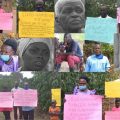 Will Uganda’s next government break the land-grabbing cycle?
Will Uganda’s next government break the land-grabbing cycle?
 Uganda’s plan to allow forceful takeover of private land stirs anger
Uganda’s plan to allow forceful takeover of private land stirs anger
 Ugandan army to punish soldiers for torturing Journalist in Kampala
Ugandan army to punish soldiers for torturing Journalist in Kampala
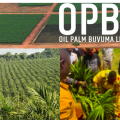 Nine (9) years and still counting: Buvuma residents still await compensation for land grabbed by the Oil palm project.
Nine (9) years and still counting: Buvuma residents still await compensation for land grabbed by the Oil palm project.

US-DRC Strategic Partnership Agreement Faces Constitutional Challenge in Court

Indigenous communities’ complaint against World Bank-linked Nepal Cable Car Project declared eligible for investigation.

The Witness Radio and Seed Savers Network Joint Radio program boosts Farmers’ knowledge of seed and food sovereignty.

Close to six years on, Pangero Chiefdom subjects still linger in pain after the government army’s forceful takeover of their ancestral land.

Will Uganda’s next government break the land-grabbing cycle?

Women environmental rights defenders in Africa are at the most significant risk of threats and attacks – ALLIED New report

Swedish pension fund drops TotalEnergies amid rising EACOP risks

Uganda moves toward a Bamboo Policy to boost environmental conservation and green growth.

Innovative Finance from Canada projects positive impact on local communities.
Over 5000 Indigenous Communities evicted in Kiryandongo District
Petition To Land Inquiry Commission Over Human Rights In Kiryandongo District
Invisible victims of Uganda Land Grabs
Resource Center
- Land And Environment Rights In Uganda Experiences From Karamoja And Mid Western Sub Regions
- REPARATORY AND CLIMATE JUSTICE MUST BE AT THE CORE OF COP30, SAY GLOBAL LEADERS AND MOVEMENTS
- LAND GRABS AT GUNPOINT REPORT IN KIRYANDONGO DISTRICT
- THOSE OIL LIARS! THEY DESTROYED MY BUSINESS!
- RESEARCH BRIEF -TOURISM POTENTIAL OF GREATER MASAKA -MARCH 2025
- The Mouila Declaration of the Informal Alliance against the Expansion of Industrial Monocultures
- FORCED LAND EVICTIONS IN UGANDA TRENDS RIGHTS OF DEFENDERS IMPACT AND CALL FOR ACTION
- 12 KEY DEMANDS FROM CSOS TO WORLD LEADERS AT THE OPENING OF COP16 IN SAUDI ARABIA
Legal Framework
READ BY CATEGORY
Newsletter
Trending
-

 MEDIA FOR CHANGE NETWORK2 weeks ago
MEDIA FOR CHANGE NETWORK2 weeks agoWomen environmental rights defenders in Africa are at the most significant risk of threats and attacks – ALLIED New report
-

 FARM NEWS2 weeks ago
FARM NEWS2 weeks ago200 farmers demonstrate at parliament, worried about new seed monopoly
-

 MEDIA FOR CHANGE NETWORK1 week ago
MEDIA FOR CHANGE NETWORK1 week agoEvicted from their land to host Refugees: A case of Uganda’s Kyangwali refugee settlement expansion, which left host communities landless.
-

 MEDIA FOR CHANGE NETWORK1 week ago
MEDIA FOR CHANGE NETWORK1 week agoWitness Radio and Seed Savers Network are partnering to produce radio content to save indigenous seeds in Africa.
-

 MEDIA FOR CHANGE NETWORK4 days ago
MEDIA FOR CHANGE NETWORK4 days agoIndigenous communities in Eastern Nepal accuse the World Bank’s Linked Cable Car Project of rights violations.
-

 MEDIA FOR CHANGE NETWORK6 days ago
MEDIA FOR CHANGE NETWORK6 days agoWhy govt is launching a comprehensive digital land registry
-

 MEDIA FOR CHANGE NETWORK3 days ago
MEDIA FOR CHANGE NETWORK3 days agoClose to six years on, Pangero Chiefdom subjects still linger in pain after the government army’s forceful takeover of their ancestral land.
-

 MEDIA FOR CHANGE NETWORK2 days ago
MEDIA FOR CHANGE NETWORK2 days agoThe Witness Radio and Seed Savers Network Joint Radio program boosts Farmers’ knowledge of seed and food sovereignty.

